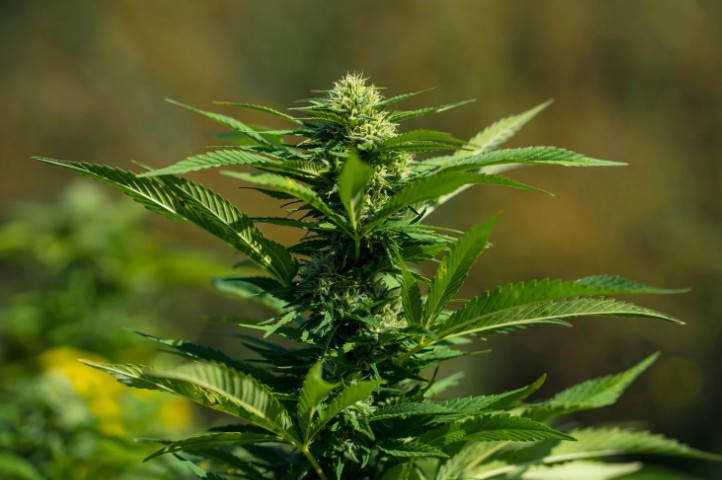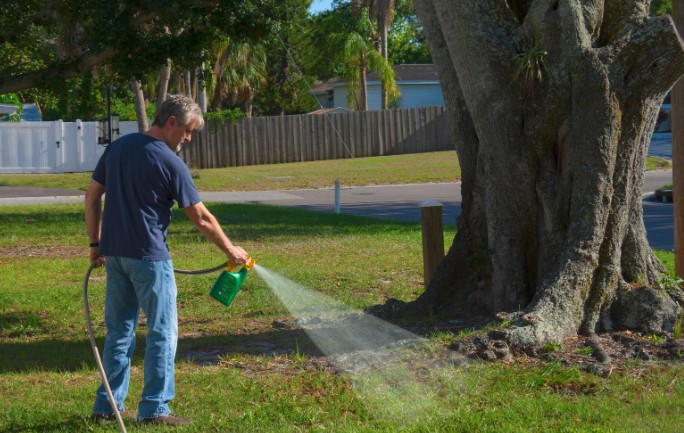- Can White Vinegar Really Kill Weeds in My UK Garden?
- What Makes White Vinegar Effective Against Weeds?
- How Do I Use White Vinegar to Kill Weeds?
- Where and When Should I Apply It in to kill in My UK Garden?
- Will Vinegar Kill All Types of Weeds?
- Does White Vinegar Kill the Roots or Just the Leaves?
- What Are the Pros of Using Vinegar as a Weed Killer?
- What Are the Cons of Using Vinegar as a Weed Killer?
- Is Vinegar Safe for My Garden, Soil, and Pets?
- Can I Mix Vinegar with Other Ingredients for Better Results?
- How Does Vinegar Compare with Commercial Weed Killers in the UK?
- What Are the Common Questions About Does White Vinegar Kill Weeds?
Can White Vinegar Really Kill Weeds in My UK Garden?
Like many UK gardeners, I’m always on the lookout for natural and affordable ways to manage weeds. The idea of using white vinegar as a weed killer caught my attention – especially as it’s something I already had in the kitchen. But I wanted to know: does white vinegar kill weeds effectively, or is it just another garden myth?
After some trials (and a bit of research), I discovered a few key facts that might surprise you – and they’re definitely worth knowing before you spray anything on your patio, driveway, or flower beds.
What Makes White Vinegar Effective Against Weeds?
The Power of Acetic Acid
The secret behind vinegar’s weed-killing power is acetic acid. Household white vinegar typically contains about 5% acetic acid, which is strong enough to damage the leafy parts of some weeds.
It draws moisture out of the plant, causing it to dry up and die.
Does Household Vinegar Work or Do I Need Horticultural Vinegar?
You can use regular white vinegar from your supermarket, but horticultural vinegar (which contains around 20% acetic acid) is more potent and gives faster results.
However, it’s harder to find in the UK and needs careful handling due to its strength.

How Do I Use White Vinegar to Kill Weeds?
Using vinegar is simple, but timing and method matter. Here’s how I usually prepare it.
What Is DIY Vinegar Weed Killer Recipe?
| Ingredient | Quantity | Notes |
| White Vinegar (5%) | 1 litre | Use stronger vinegar for tougher weeds |
| Salt (table or rock) | 2 tablespoons | Helps dry out weeds faster |
| Washing-up Liquid | 1 teaspoon | Acts as a surfactant to stick to leaves |
| Spray Bottle | As needed | Avoid spraying on windy days |
Tip: Only apply on dry, sunny days for best results, and try to avoid spraying nearby plants.
Where and When Should I Apply It in to kill in My UK Garden?
I apply it:
- On paths, patios, and driveways
- During midday when the sun is out
- On young weeds that are still small and manageable
Vinegar is non-selective, so avoid using it on lawns or near your flowers and vegetables.
Will Vinegar Kill All Types of Weeds?
Annual vs Perennial Weeds
Vinegar works well on annual weeds like chickweed or crabgrass, especially when they’re young. However, perennial weeds like dandelions or bindweed are more stubborn and may regrow from the roots, since vinegar only kills what it touches above ground.

Does White Vinegar Kill the Roots or Just the Leaves?
This is important: vinegar doesn’t kill the roots—especially with deep-rooted weeds. You’ll often need to reapply or dig them out manually after treating with vinegar.
What Are the Pros of Using Vinegar as a Weed Killer?
- Eco-friendly and chemical-free
- Affordable and easily available
- Quick results on young weeds
- Safe to use in pet and child-friendly gardens (with caution)
What Are the Cons of Using Vinegar as a Weed Killer?
- Doesn’t kill roots (especially in perennial weeds)
- Can harm nearby plants and soil if overused
- May require multiple applications
- Not effective in rainy or shaded conditions
Is Vinegar Safe for My Garden, Soil, and Pets?
Will Vinegar Harm My Soil Health or Nearby Plants?
Vinegar can alter soil pH slightly if used in large amounts, and can damage surrounding plants if sprayed accidentally. I always use a cardboard shield or spray bottle with a narrow nozzle for accuracy.
What About Children and Pets in the Garden?
Once the vinegar dries (usually within an hour), the treated areas are safe for children and pets. I still avoid letting pets near freshly sprayed spots, just to be cautious.
Can I Mix Vinegar with Other Ingredients for Better Results?
Yes! There are several DIY combinations you can try, though be cautious with salt as it can affect the soil long-term.
| Recipe Type | Ingredients | Effectiveness | Notes |
| Basic Vinegar Spray | Vinegar only | Moderate | Best for small, young weeds |
| Vinegar + Salt + Soap | Vinegar, salt, washing-up liquid | High | Stronger, avoid in planting areas |
| Vinegar + Lemon Juice | Vinegar, lemon juice | Moderate | Smells fresh, but milder effect |
Note: Use salt-based mixes sparingly to prevent soil damage.
How Does Vinegar Compare with Commercial Weed Killers in the UK?
Here’s how vinegar stacks up:
| Feature | White Vinegar | Commercial Weed Killer |
| Cost | Low | Moderate to High |
| Eco-Friendliness | High | Low to Medium |
| Root Killing | No | Yes |
| Immediate Results | Yes (on surface) | Yes |
| Soil Safety | Moderate | Depends on product |
In my experience, vinegar is ideal for spot-treating small areas, but chemical weed killers might still be necessary for deep-rooted or widespread infestations.
Final Thoughts – Should I Use White Vinegar to Kill Weeds in My Garden?
For me, white vinegar is a handy, eco-conscious weed control option for smaller jobs in the garden. It’s not a miracle cure – it won’t kill all types of weeds or their roots – but it’s a great first step before reaching for harsher chemicals.
If you’re like me and want to reduce chemical use, give vinegar a try on your patio or pathways – just don’t expect it to solve every weed problem on its own.

Related Article: 5 Star Rated Strongest Weed Killer That Kills Everything (Top 12)
What Are the Common Questions About Does White Vinegar Kill Weeds?
1. How long does it take to work?
Usually within 24 hours on sunny days.
2. Can I spray vinegar on my lawn?
No. It will damage your grass and any other plants it touches.
3. What concentration of vinegar works best?
5% household vinegar works for young weeds. For stronger weeds, use 20% horticultural vinegar (with care).
4. Is it legal to use vinegar as a weed killer in the UK?
Yes, but it’s not an officially registered herbicide, so use it responsibly and on your own property.


0 Comments